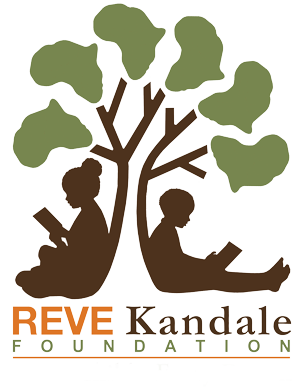Kandale Trip with Enoch Kashitu as a baby - 1995
In 1995, I traveled back to Kandale, seven years after Greg and I went there with his parents for our wedding in the church in which I grew-up.
The trip was prompted by the outbreak of the Ebola virus in my hometown of Kikwit, where my mother and some of my “long-sleeve” relatives resided. At the time, there were no phones, and getting news from my mother in Kikwit was like waiting for the results of a blood test where you never knew what the news would be. So, when I managed to travel home and saw my mother again, it was like the return of the prodigal son, except that no fattened calf was slaughtered.
I taught fifth grade in Kandale, after graduating from high school. This is where I met my husband Greg, a former U.S. Peace Corps volunteer in Kandale. We had been living in the United States, and this was my first trip back since our church wedding in 1988. So, I was anxious to see everyone.
The day we arrived, it poured all night as though God had forgotten to turn off some faucets in heaven. The power of the rain, heavy wind, and lightning made every soul jump out of bed.
Children playing on the destroyed HS building
When dawn broke the destruction was shocking. Both the entire Kandale primary school and one of the main high school buildings built with twigs and dirt were flattened to the ground like hair in a storm. The beautiful mangoes that hung low on trees growing around the mission -- daring children to touch them -- had been ripped apart and lay on the ground.
I snapped some photos of a group of children in the distance cheerfully collecting as many mangoes as their little hands could hold.
Before I could take another shot of the kids, a loud cry from Kandale hospital stabbed my heart, and my mind wandered away from the happy scene of children playing. A young girl of 11 from a faraway village had just lost her mother in childbirth. The sight of the girl crying, her mother lying lifeless on the ground, was heartbreaking.
I walked away from there with my heart still sobbing and proceeded to the school parent-teachers meeting, which was to decide how to fix the classrooms destroyed by the storm. I had barely taken my seat, when one of the teachers shared his bright idea. We should not hire women teachers, he shouted. Why not? I screamed breaking all protocols as observer in the meeting. They cannot climb on the roof to fix their own classrooms; male teachers must do it for them, he answered gently. Despite his gentle answer, it was quite upsetting that he would advise such extreme measures against the three female teachers. Then, I realized that female or not, these were mostly teachers in their retiring age who had no business contemplating climbing anything, especially wet roofs. But in Congo, the government had no retirement plans for teachers.
I left a couple of days later as my vacation came to an end. It felt as though my memories of Kandale, and the challenges people faced to access basic education and healthcare, were diluted by my life in the United States.
The trip back to Kandale was an eye opener. It changed my life, almost like the burning bush that turned Moses into the man who would lead the Israelites out of Egypt and into Canaan. For the next few years my mind became preoccupied with the plight of the people of Kandale. I began to rally the entire Kandale community at home and in the diaspora. The people of Kandale were clear what they needed: better classrooms for their children and tree planting to bring the forest closer to home.
In 2010, we created the Réhabilitation de l'Espace Vert et des Ecoles Kandale (REVE Kandale), a charitable organization working in the Democratic Republic of Congo to promote education, environment and empowerment of girls and women. In English, it translates into Rehabilitation of Green Spaces and Schools. And “reve” translates into “dream.”
We have made a lot of progress over the past few years, and I am confident that in the years to come we will make that dream a reality.





